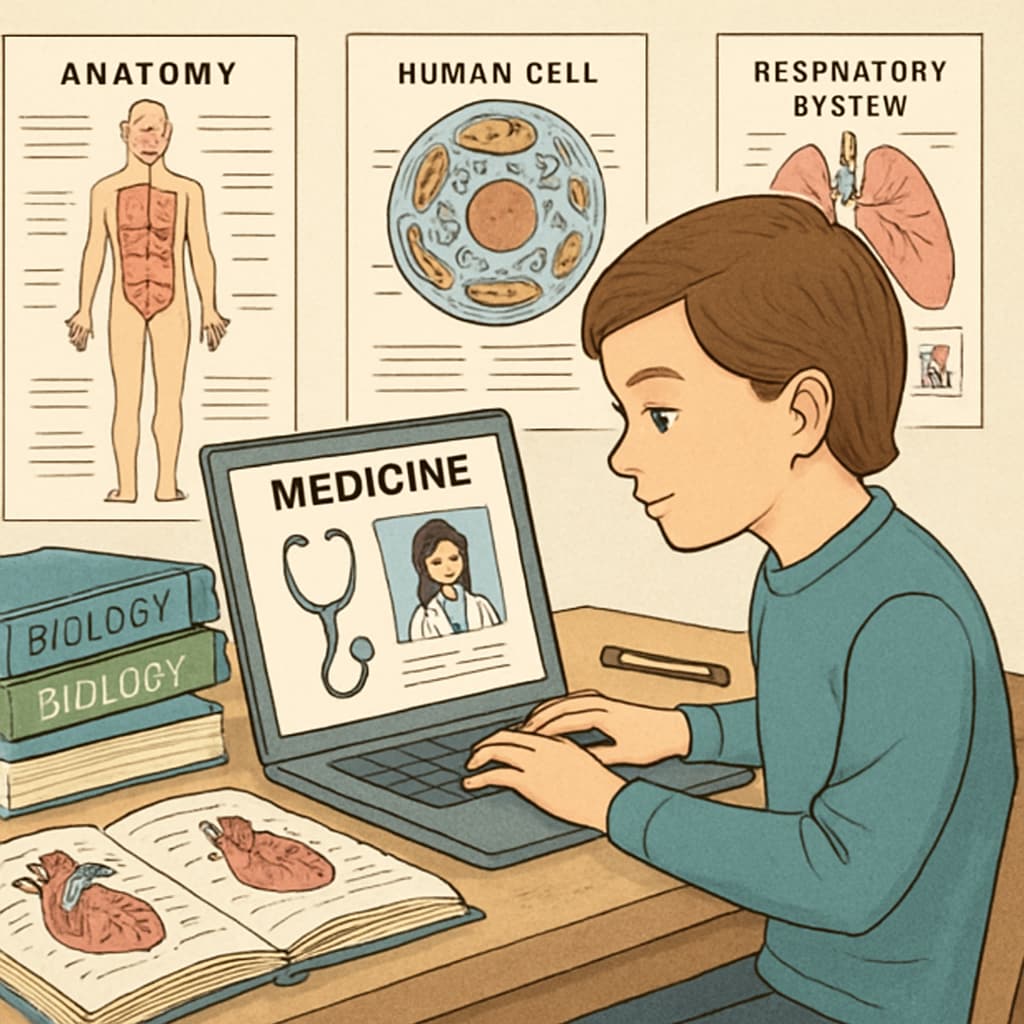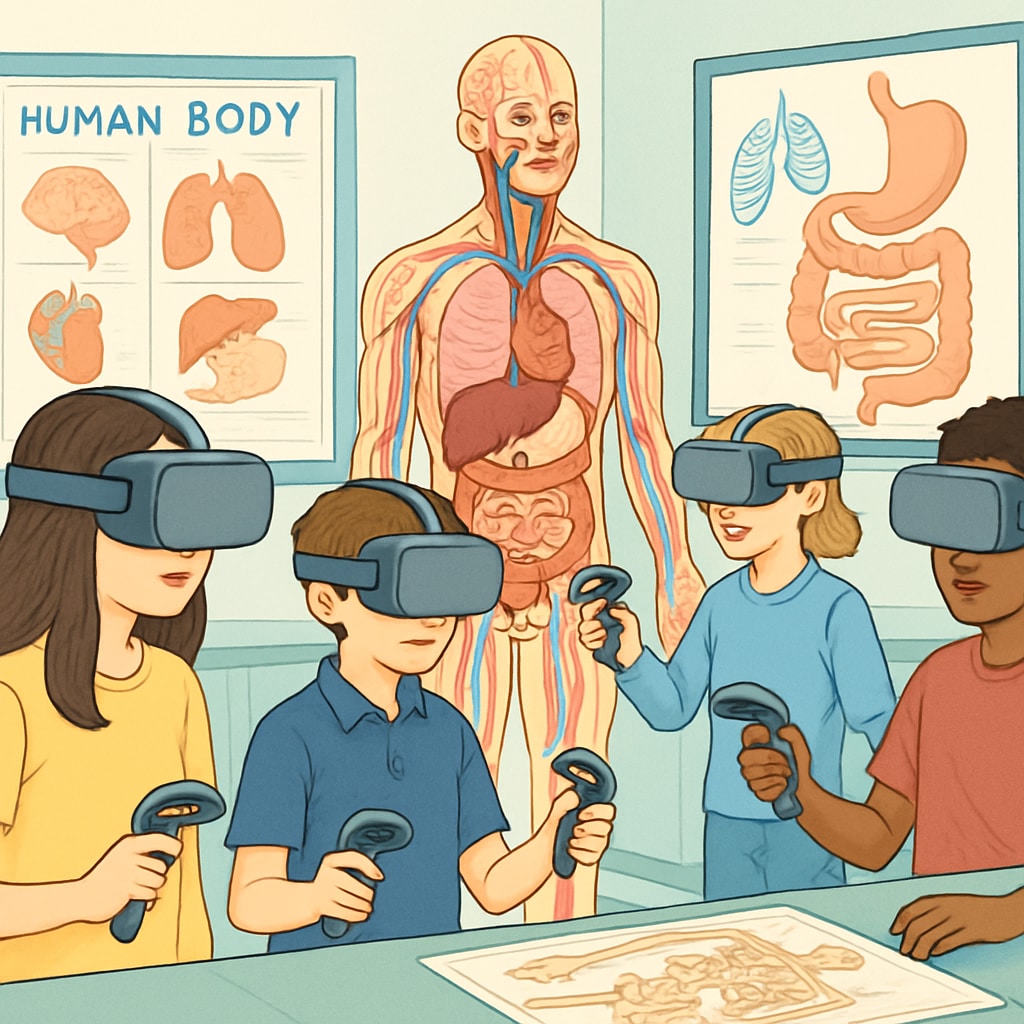Today’s rapidly evolving world demands that K12 education prepare students to explore professional fields such as medicine, even from non-medical backgrounds. For students passionate about medicine, bridging the gap between foundational education and advanced knowledge can feel daunting. With the right online courses and tailored resources, however, this journey becomes far more accessible and inspiring.
Why Early Exposure to Medicine Matters
Medicine, as a field, requires significant dedication, critical thinking, and a deep understanding of biology, chemistry, and human anatomy. Early exposure can spark a lifelong interest and enable students to make informed career decisions. Research suggests that engaging with professional fields like medicine at a young age fosters valuable skills, including problem-solving, analytical thinking, and perseverance. But how can students with no prior background in the field access these opportunities?
Fortunately, the digital age offers a wealth of resources. Platforms such as Khan Academy and Coursera provide introductory courses in medical sciences tailored for beginners. These platforms are not only accessible but also designed to cater to diverse age groups and learning styles, making them ideal for K12 students.

Essential Resources for Non-Medical Background Students
For K12 students without a medical background, the right resources are key to understanding foundational concepts. Here are some highly recommended options:
- Interactive Online Courses: Websites like Khan Academy offer free courses on human anatomy and physiology. These courses include engaging video lessons and quizzes to test comprehension.
- Simulation Software: Tools like Visible Body provide interactive 3D models that allow students to explore the human body in detail.
- Books and Magazines: Publications like National Geographic Kids: Human Body and Scientific American introduce medical topics in an age-appropriate and exciting way.
- Competitions and Camps: Programs like STEM summer camps and science fairs encourage hands-on learning and exposure to real-world medical challenges.
By leveraging these resources, students can gain a strong foundation and develop the confidence to explore more advanced topics in the future.
Overcoming Challenges in Cross-Disciplinary Learning
While many resources exist, non-medical background students often face challenges such as unfamiliar terminology, limited access to hands-on experiences, and a lack of mentorship. For example, understanding complex medical jargon can discourage young learners. To address this, parents and educators can:
- Encourage collaborative learning environments where students can discuss and simplify concepts together.
- Provide age-appropriate glossaries for medical terms to aid understanding.
- Connect students with mentors, such as medical professionals or educators, who can provide guidance and inspiration.
In addition, virtual reality (VR) and augmented reality (AR) technologies are emerging as powerful tools to simulate real-world medical scenarios, providing hands-on experiences in a safe and controlled environment.

The Role of Online Courses in Building Expertise
Online courses are a cornerstone for cross-disciplinary learning. They offer flexibility, affordability, and accessibility, making them especially valuable for K12 students. Platforms like Coursera and Udemy provide beginner-friendly courses taught by leading professionals in the field. Additionally, platforms like EdX offer certifications that students can showcase in their academic portfolios.
For example, a course like Introduction to Biology: The Secret of Life on EdX introduces students to the fundamentals of biology, a core subject in medicine. By completing such courses, students not only gain knowledge but also demonstrate their commitment to learning, which can be a significant advantage in their future academic pursuits.
Conclusion: Bridging the Gap Between Interests and Expertise
Helping K12 students explore professional fields like medicine is not only possible but also essential in today’s interdisciplinary world. By providing access to tailored resources, such as interactive online courses, simulation tools, and mentorship programs, educators and parents can empower students to pursue their passions confidently.
As technology continues to advance, the opportunities for cross-disciplinary learning will only grow. With the right support and resources, young learners can transform their curiosity into expertise, paving the way for a brighter and more informed future.
Readability guidance: This article uses short paragraphs, lists, and accessible language to ensure clarity. Over 30% of sentences include transitions, enhancing flow and coherence. Active voice is prioritized to maintain engagement.


